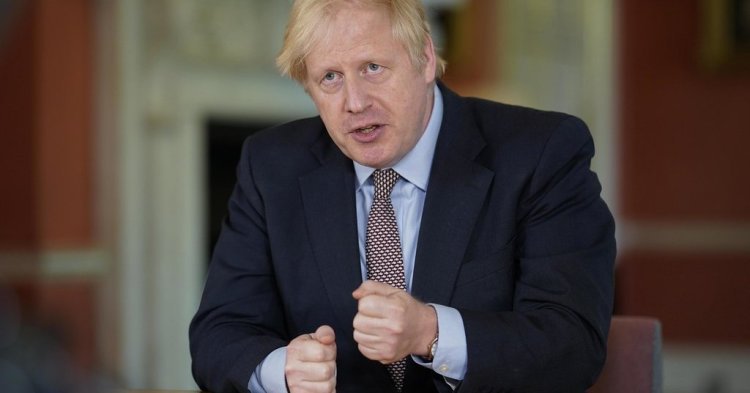The paradox of globalisation
Brexit has been painted as an anti-globalisation backlash by countless pundits and political scientists. They point to a marginalised electorate which feels economically and culturally threatened in a world changed by increased international mobility of goods and people. Yet what of the murky forces which succeeded in placing the departure from the European Union on the policy agenda, at a time when only 11% of Britons thought their country’s membership was a pressing issue? And how did this relative indifference in 2014 balloon into the bitterest division in modern Britain?
There is a gigantic mismatch between the concerns of the so-called “left-behind” and those who force-fed them Brexit as a solution. In fact, the masterminds of Brexit are in no way receptive to or representative of the concerns held by voters about globalisation; nor are they interested in resisting or softening the process. Rather, they strive to achieve the exact opposite: unsweetened globalisation on fast-forward.
Britain’s gift to tycoons
For the UK’s elite hard-right politicians and business tycoons, Brexit is nothing more than a stepping stone to a basement Britain in which workers’ rights and product regulations can at last be stripped away. Guaranteed by the pesky European Union as a common ground for intra-European trade and a way of upholding living standards and well-being, such laws are seen as a handbrake on profits for the ultra, ultra rich.
Media moguls form part of this category. As well as the twin brothers of Brecqhou, American billionaire Rupert Murdoch, whose company News Corp owns the tabloid The Sun and the broadsheet The Times, is another prime example. The Sun backed Brexit with crude, nationalist-sentiment-stirring headlines such as “Independence Day”, while behind the scenes, ingenious international accounting continues to allow News Corp to jump through many a loophole.
Such powerful figures have everything to gain from a party which is hard on immigrants and light on tax. Wealthy media elites have every incentive to keep the Conservatives in power, distract us with bloated immigration statistics and protect politicians from their own catastrophic failings. Even if these failings cost thousands of lives.
A common thread
The media reaction to the corona crisis shows a frightening number of similarities to its coverage of Britain’s referendum on its membership of the European Union.
– A swooning admiration, almost glorification, of hard-right Conservative politicians. In the run-up to the general election in December 2019, the newspapers hailed Boris Johnson as the saviour of Brexit and saviour of Britain. As he recovered from coronavirus right before Easter, the newspapers claimed he would get through it due to his “fighting spirit” – as if the virus were interested in his personality. Despite the fact that the UK suffered its highest daily death toll so far on the day he left hospital, with almost a thousand Britons losing their lives, The Sun plastered a sun-drenched picture of Johnson on its front page, claiming cheerfully “that really is a Good Friday!”.
– An appalling deterioration of “mainstream”, supposedly reliable, media sources. Britain’s tabloids overwhelmingly pushed for Brexit with an onslaught of biased, distorted stories. But what is even more alarming is that their lack of regard for the most basic principles of journalism, including distinguishing what is objectively true and false, has now contaminated the mainstream.
On both coronavirus and Brexit, the BBC — Britain’s public broadcaster and a supposed bastion of quality journalism — has frequently fallen down hard. Supposedly pursuing a strategy of “balance”, the BBC has repeatedly legitimised extreme views by giving polarising figures a prominent platform on panel and news shows. When Nigel Farage is invited to discuss coronavirus, a topic on which he, as a non-scientist and holding no single political mandate, has absolutely zero authority to speak, there is a huge problem. Equally, the Telegraph used to be seen a quality right-wing, pro-business broadsheet, before it began to air progressively nationalistic views and defend the government even in situations
– A willingness to overlook not only major faults but also staggering lies and U-turns. During the campaigns in the run up to the 2016 referendum, the mainstream media failed spectacularly to call out the even the most outrageous claims made by the Vote Leave campaign, such as the infamous £350 million for the NHS promise, or even express genuine opposition to the fierce underlying racism.
Not too dissimilarly, the BBC’s headline on cabinet minister Michael Gove’s defence that Britain won’t lose out after failing to participate on the EU PPE (personal protective equipment) scheme was even blander than the defence itself. A chronic lack of personal protective equipment in British hospitals and care homes is quite literally causing doctors, nurses and carers to risk and, on at least 300 occasions so far, lose their lives through contracting the disease for want of proper protection. Despite the fact that this shortage could have been alleviated earlier by participating in the EU’s collective buying scheme, the BBC was too weak to call out the political games which clearly underpinned Britain’s opt-out – even though lives are at stake. That said, the BBC has on occasions demonstrated some investigative spirit - it successfully revealed the government’s “creative accounting” on PPE, highlighting for example that the calculations had included items such as paper towels.
Warnings to medical staff about publicising this shocking shortage – for example, telling them that their social media output is being monitored and firing care home workers who dare to speak out are worthy of the Kremlin.
– Contempt for the press. Boris Johnson hiding in a fridge prior to an election might make for an entertaining meme, but trying to send reporters from certain publications out of Downing Street and making coronavirus press conferences into a pointless sham by blocking follow-up questions is more serious.
Beyond bias, into failure
In Britain, the freedom of the press is not under threat as directly or visibly as elsewhere in the world. Yet the mainstream mediascape is heavily dominated by a small core of private billionaire interests with an incentive to prop up heavily neoliberal-minded politicians with a casual attitude to keeping track of private flows of money.
Equally, there is disproportionate criticism of those who reject this demi-tax haven, low regulation vision of Britain. Former Labour Party Jeremy Corbyn set out to forge a more equal society in which the rich pay their taxes. Deserving of criticism for his shoddy leadership as he was, the atrociousness of the media attacks against him were an indication of the threat he posed to those who benefit most from the current system. The UK has now become the country with the most coronavirus deaths in Europe – but rather than report this tragic statistic and criticise the government’s disastrously slow lockdown and failure to reach its own very meagre testing targets, Britain’s newspapers preferred to report on a sex scandal and ponder cheerfully about whether lockdown would end soon. Imagine how critical the front pages would have looked had a Labour government been in charge.
There are exceptions, such as The Guardian, the Financial Times, or smaller independent outlets, yet overall, both Brexit and COVID-19 have shown that British journalism is in dire straits. The British press is, in fact, a perfect mirror of British politics; hijacked by a small minority of powerful figures, increasingly hard right and increasingly willing to gloss over hard and fast realities.
Brexit has cost many livelihoods; COVID-19 has cost many lives. On both, the press has failed Britain. Whatever the next crisis holds, I am certain the press will not be up to covering it.


Follow the comments: |
|
